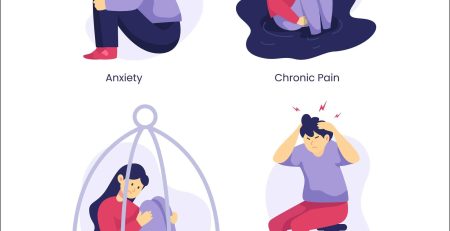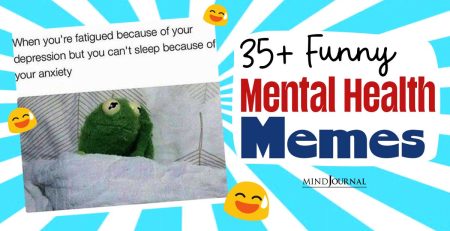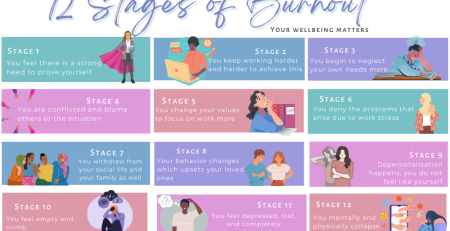Depression Symptoms Unveiled: Spot the Hidden Signs
Depression symptoms include persistent sadness and a loss of interest in activities once enjoyed. They can impact thoughts, feelings, and daily functioning.
Understanding depression is crucial, as it affects millions globally, influencing their quality of life and productivity. A mental health disorder characterized by its intensity and duration, depression goes beyond occasional blues, often requiring professional intervention. Early recognition and treatment are vital to managing symptoms, which may range from subtle to debilitating.
This introduction aims to highlight key factors of depression, shedding light on its common signs while providing a basis for further discussion on its impact and coping strategies. By acknowledging and addressing these symptoms, individuals can take the first steps toward recovery and improved mental wellness.
Understanding Depression
Depression is more than just a low mood – it’s a serious condition that affects your physical and mental health. Recognizing the signs and symptoms is the first step toward managing this condition. Many perceive it as simply feeling sad or down, but it goes much deeper, affecting numerous aspects of daily life. In this section, we’ll delve into what depression is, explore the various types, and examine how it can dramatically alter everyday activities.
What Is Depression?
Depression manifests as a mental health condition marked by continual feelings of sadness or a lack of interest in usual activities, leading to substantial disruptions in daily functioning. It can lead to a range of emotional and physical problems and can decrease a person’s ability to function at work and home. For a depression diagnosis, symptoms need to persist for a minimum of two weeks.
Types Of Depression
- Major Depressive Disorder (MDD): This is the classic form, with significant episodes of sadness and a lack of interest or pleasure in life activities.
- Persistent Depressive Disorder: Also known as dysthymia, this type includes chronic depression that lasts for two years or more.
- Bipolar Disorder: Characterized by mood swings that range from highs (mania) to lows (depression).
- Seasonal Affective Disorder (SAD): A type of depression that’s related to changes in seasons and diminished exposure to sunlight.
- Postpartum Depression: An intricate blend of physical, emotional, and behavioral alterations experienced post-birth, frequently linked to hormonal shifts.
Impact Of Depression On Daily Life
Depression’s impact on daily life can be all-encompassing, touching various aspects:
| Aspect | Impact |
|---|---|
| Work Performance | Loss of concentration, decision-making difficulties, and absenteeism can affect job responsibilities and productivity. |
| Social Life | Withdrawal from friends and activities can lead to isolation and a diminished support network. |
| Physical Health | Changes in appetite and sleep can result in weight changes, fatigue, and a decrease in physical wellbeing. |
| Mental Well-being | Persistent feelings of sadness, anxiety, or emptiness can lead to decreased self-esteem and heightened risk of substance abuse. |
Understanding these impacts is vital in seeking help and developing coping mechanisms that improve quality of life.
Recognizing Physical Symptoms
While depression is often associated with feelings of sadness and hopelessness, it can also manifest as a range of physical symptoms. Understanding these signs is vital because they might go unnoticed or be mistaken for other health issues. Physical symptoms can be as debilitating as emotional distress and significantly impact a person’s day-to-day life.
Changes In Appetite And Weight
Depression can have a direct effect on eating habits, leading to noticeable changes in appetite and weight. These variations can present as:
- Increased appetite – A coping mechanism for some individuals is to eat more, often craving carbohydrates and sugary foods which can lead to weight gain.
- Reduced appetite – Many experience a decreased desire to eat, resulting in weight loss and possibly nutritional deficiencies.
Acknowledging these changes is essential for understanding how depression affects physical well-being.
Sleep Disturbances
Sleep patterns are commonly disrupted by depression, influencing both the quality and quantity of sleep. Affected individuals might experience:
| Sleep Disturbance | Description | Potential Impact |
|---|---|---|
| Insomnia | Difficulty falling or staying asleep. | Leads to fatigue and exacerbates mood issues. |
| Hypersomnia | Excessive sleepiness or prolonged sleep durations. | Contributes to a lack of energy and motivation. |
Seeking help for sleep issues is critical since they can interrupt daily life and recovery processes.
Unexplained Aches And Pains
Sometimes, depression presents through physical pain that doesn’t have a clear medical cause. This may include:
- Headaches – Often described as persistent or dull aches that do not respond well to over-the-counter pain killers.
- Muscle and joint pain – A deep, aching pain in muscles or joints that is resistant to usual treatment methods.
- Digestive problems – Includes stomachaches, cramping, or other gastrointestinal discomforts.
It’s crucial to consider these ailments as potential signs of depression, especially if they are ongoing and unexplained by other health conditions.
Noticing Emotional Symptoms
Depression is more than just feeling down; it’s a serious mental health condition that encompasses a range of emotional symptoms, which can be crippling and persistent. Recognizing these emotional signs is crucial for seeking help and finding a path to recovery. Let’s delve into some of the most significant emotional symptoms that might indicate the presence of depression.
Persistent Sadness Or Emptiness
A hallmark sign of depression is a pervasive sense of sadness or emptiness. This doesn’t just come and go; it’s a constant undertone to daily life. Individuals might describe it as:
- A feeling of emotional numbness
- An ever-present gloom that doesn’t lift with good news or positive events
- A sense of despair even when circumstances haven’t changed
This symptom is one that friends and family can often recognize even before the affected individual seeks help.
Feelings Of Hopelessness
Overwhelming hopelessness is another red flag of depression. It’s characterized by:
- A conviction that things will never improve regardless of evidence to the contrary
- A lack of motivation, as everything seems pointless
- A belief that no action will make a difference in their life or situation
Challenging these feelings is difficult for someone with depression, as there’s often a deep-rooted belief that they are an unchangeable part of one’s existence.
Irritability Or Frustration
Often overlooked, irritability and frustration can be powerful indicators of depression. These symptoms might include:
- Short temper over matters that typically wouldn’t bother the individual
- Frequent frustration over small inconveniences
- Anger that feels disproportionate to the situation
These bursts of emotion can create strain in personal relationships, furrowing the path deeper into a depressive state.
Understanding Behavioral Symptoms
Depression is a complex mental health disorder that manifests in a multitude of ways, deeply influencing a person’s emotions, thoughts, and behaviors. Recognizing the behavioral symptoms can be crucial for identification and early intervention. These symptoms often disrupt daily life, affecting work, relationships, and overall well-being. Let’s explore the key behavioral symptoms often associated with depression.
Loss Of Interest In Activities
One tell-tale sign of depression is a noticeable reduction in enthusiasm for activities that were once enjoyed. This could range from hobbies and social events to even the most basic daily routines such as:
- Engaging in hobbies or sports
- Participating in social gatherings
- Completing household tasks
This decrease in interest can lead to a withdrawal from activities and a sense of joylessness that permeates various aspects of life.
Avoiding Social Interactions
Withdrawal from social circles is another significant behavioral symptom. Individuals with depression might:
- Cancel plans consistently
- Ignore calls and messages
- Isolate themselves from family and friends
This social avoidance can contribute to feelings of loneliness and exacerbate other depression symptoms.
Difficulty Concentrating
Depression can also affect cognitive functions, leading to trouble with concentration and decision-making. This cognitive impairment often results in:
| Area Affected | Examples |
|---|---|
| Work Performance | Making errors, missing deadlines |
| Academics | Poor retention, difficulty studying |
| Daily Life | Forgetting appointments, inability to focus on tasks |
It’s not just about “having a lot on one’s mind” but a persistent struggle that disrupts productivity and can increase feelings of worthlessness or failure.
Exploring Cognitive Symptoms
Depression is often associated with emotional pain, but its impact goes beyond just feelings of sadness or despair. Cognitive symptoms can significantly impair an individual’s thought processes, affecting daily functioning and quality of life. Understanding these cognitive signs is crucial in recognizing and addressing depression.
Negative thoughts or beliefs
Negative Thoughts Or Beliefs
Negative thoughts or persistent pessimism are central cognitive symptoms of depression. These are not just fleeting moments of doubt but entrenched patterns of thinking that can distort one’s self-view and interpretation of the world.
- Believing one is worthless or inadequate
- Feeling hopeless about the future
- Excessive guilt or self-blame
Difficulty making decisions
Difficulty Making Decisions
When depression clouds the mind, making decisions becomes an uphill battle. This isn’t just indecisiveness; it’s a profound difficulty to choose even in simple day-to-day matters.
| Without Depression | With Depression |
|---|---|
| Clear thought process | Confusion and uncertainty |
| Logical evaluation | Distorted judgment |
| Quick decision-making | Procrastination |
Memory problems
Memory Problems
Memory problems often plague those grappling with depression. It’s not simply forgetfulness; it reflects a deeper disruption in cognitive function, impeding the ability to remember, learn, and concentrate.
- Difficulty retaining new information
- Struggle to remember appointments or commitments
- Forgetting important personal information
Assessing Risk Factors
Understanding the multifaceted nature of depression is fundamental when exploring this mental health disorder. One critical aspect involves assessing the risk factors that could predispose individuals to developing depression. Identifying these factors provides crucial insights into preventive measures and supports early intervention strategies. In this segment, we delve into the common risk factors associated with depression.
Family History Of Depression
A genetic predisposition is one of the key elements that can elevate a person’s depression risk profile. If a close relative, particularly a parent or sibling, has struggled with depression, that individual’s likelihood of facing the same battle increases significantly.
An inherited biological risk does not seal one’s fate but acts as an indicator for heightened vigilance and potential preventive action. Regular mental health check-ins become ever more critical for those with a family history of depression.
Personal Trauma Or Stress
Life events marked by trauma or extreme stress are pivotal in shaping mental health. Events such as the loss of a loved one, relationship breakups, or job-related stress can trigger depressive episodes. Traumatic experiences, especially during formative years, can have long-term psychological impacts leading to depression.
| Type of Stressor | Potential Impact on Mental Health |
|---|---|
| Bereavement | Possibility of complicated grief leading to depression |
| Relationship Issues | Increased vulnerability to depressive states |
Substance Abuse
Engaging with substances such as alcohol or drugs as a coping mechanism for stress or emotional pain often backfires. Substance abuse contributes significantly to the alteration of brain chemistry, which can precipitate or aggravate depressive symptoms.
- Increased risk of addiction
- Worsening of depressive symptoms over time
- Reduced efficacy of depression treatment due to interference by substances
Recognizing the link between substance use and depression is essential for both prevention and recovery. Seeking professional help to address substance abuse can also help mitigate its role in the development of depression.
Seeking Help
Recognizing the symptoms of depression is a critical step, but understanding when and how to seek help is equally pivotal. Feeling the weight of depression can make reaching out seem overwhelming —yet it is one of the most courageous steps towards healing. Professional guidance not only clarifies your specific experience but can also unlock a path to a more hopeful and stable future. A myriad of treatment options and support resources are available, and personalized self-care strategies can catalyze recovery. Embarking on this journey towards mental wellness starts with the crucial action of seeking help.
Self-assessment can point to depression, but medical confirmation is imperative. The complexities of depression encompass biological, psychological, and social factors —a professional diagnosis disentangles these aspects to provide a clear picture of your health. Identifying the depression type and its severity guides effective treatment strategies, ensuring tailored support and avoiding missteps that could harm your progress.
Once a diagnosis is established, finding a suitable treatment plan is the next step. Options range from psychotherapy, medication, to lifestyle alterations.
- Psychotherapy includes approaches like Cognitive Behavioral Therapy (CBT) and Interpersonal Therapy (IPT).
- Pharmacotherapy involves medications such as antidepressants, which must be prescribed and monitored by healthcare providers.
- Lifestyle changes can complement medical treatments and include exercise, diet adjustments, and maintaining a healthy sleep schedule.
Exploring these treatments with a professional ensures your care is comprehensive and suited to your individual needs.
Beyond professional treatment, numerous support resources can amplify recovery. Therapy groups, hotlines, and online forums offer spaces of understanding and shared experiences. Peer support can be an invaluable component of the healing process, providing encouragement and insights.
Meanwhile, self-care strategies play a crucial role in daily life. They can include:
- Setting realistic goals
- Establishing a routine
- Prioritizing tasks
- Exercising regularly
- Staying connected with loved ones
- Practicing mindfulness and relaxation techniques
Integrating these practices can create a structure that nurtures holistic health and well-being.
Frequently Asked Questions For Depression Symptoms
What Are Common Depression Symptoms?
Depression presents itself with diverse symptoms including continuous feelings of sadness, lack of interest in activities, fatigue, alterations in appetite, sleep disruptions, and a sense of worthlessness.
Can Depression Cause Physical Pain?
Yes, depression can lead to physical symptoms like headaches, back pain, muscle aches, and joint pains. It’s essential to consider these symptoms in the diagnosis of depression, as they can significantly impact quality of life.
How Does Depression Affect Daily Life?
Depression can severely affect daily life by impairing concentration, decision-making, and social interactions. It often leads to decreased productivity, withdrawal from social activities, and neglect of personal care.
Can Depression Symptoms Vary By Age?
Depression symptoms can indeed vary by age. Adults may experience more pronounced lethargy and despair, whereas children and teenagers might exhibit irritability and academic decline. Elderly individuals often have subtler symptoms, like general discontent and physical aches.
Conclusion
Recognizing the signs of depression is crucial for seeking timely help. As we’ve explored, symptoms vary widely and can impact daily life significantly. Remember, acknowledging these signs is a strong first step toward recovery. Support is available, and treatment can lead to better mental health.
Don’t hesitate to reach out.









Leave a Reply